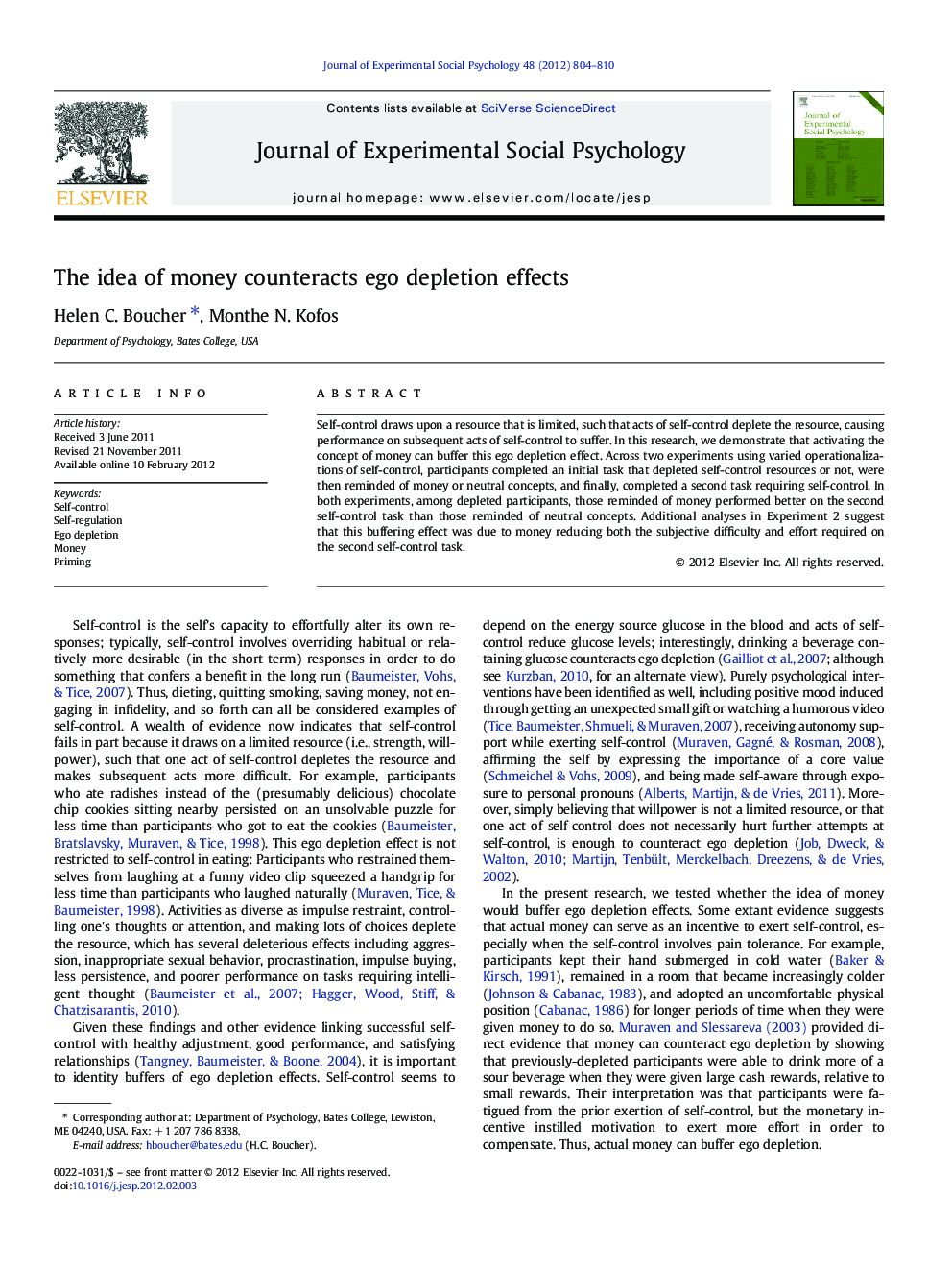| Article ID | Journal | Published Year | Pages | File Type |
|---|---|---|---|---|
| 948273 | Journal of Experimental Social Psychology | 2012 | 7 Pages |
Self-control draws upon a resource that is limited, such that acts of self-control deplete the resource, causing performance on subsequent acts of self-control to suffer. In this research, we demonstrate that activating the concept of money can buffer this ego depletion effect. Across two experiments using varied operationalizations of self-control, participants completed an initial task that depleted self-control resources or not, were then reminded of money or neutral concepts, and finally, completed a second task requiring self-control. In both experiments, among depleted participants, those reminded of money performed better on the second self-control task than those reminded of neutral concepts. Additional analyses in Experiment 2 suggest that this buffering effect was due to money reducing both the subjective difficulty and effort required on the second self-control task.
► Self-control fails because it relies on a limited resource. ► Exercising self-control makes later self-control more difficult (ego depletion). ► The idea of money evokes feelings of strength or efficacy. ► Money reminders counteracted the ego depletion effect. ► This was due to money reminders reducing the subjective difficulty of and effort exerted on self-control.
